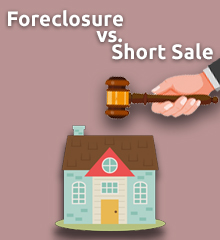How Much Does It Cost to File Chapter 13 in Texas?

If you are considering Chapter 13 bankruptcy in Texas, you may be curious how much it costs to file. Many people are worried they cannot afford to file bankruptcy and while there are several fees associated with filing, most fees can be paid in installments or even included in your court-approved repayment plan.
Chapter 13 bankruptcy: Texas specifics
Chapter 13 bankruptcy is governed by federal and state law. It’s important to know that bankruptcy varies from state to state. In Texas, there are several important things you should know.
First, the state of Texas offers very generous exemptions that can help you keep more of your property. In fact, Texas has some of the most generous exemptions in the nation, meaning that most people can keep their home, car, and other assets when they file Chapter 13 bankruptcy. It’s also important to know that the court-approved repayment plan is based, in part, on your total non-exempt property.
For example, the homestead exemption in Texas has unlimited equity protection for a primary residence that is up to 10 acres in a city or 100 acres in the country for individuals; 200 acres for married couples or families. Additionally, there is a vehicle exemption for one car per licensed driver in a household. Additionally, Texas provides an exemption for personal property up to $50,000 for a single person or $100,000 for a couple. Personal property includes clothing, tools, firearms, housewares, and more.
Second, it’s important to understand that Texas is a nonjudicial foreclosure state, which means that lenders are able to move very quickly to foreclose on a home. In some cases, a lender can foreclose in as little as 41 days after you miss a mortgage payment. The expedited timeline makes it critical to move quickly if you are in danger of losing your home. An attorney can help you understand your options and if appropriate help you file Chapter 13 bankruptcy to stop the foreclosure.
Additionally, Chapter 13 bankruptcy can also help stop a repossession and in some cases allow you to reduce the amount of the loan to the current value of the vehicle. Chapter 13 also allows people the opportunity to consolidate or reduce credit card bills, medical bills, and personal loans.
Chapter 13 bankruptcy in Texas is a powerful tool but it can get complex quickly. To capitalize on the generous state exemptions in Texas and protect yourself and your family, it’s wise to consult with an attorney.

Filing bankruptcy chapter 13 in Texas
If you are considering filing for bankruptcy, you should consult with an attorney. While it is possible to file bankruptcy without an attorney, your chances are greatly improved if you get assistance from a qualified attorney in Texas. Not only are your chances for getting your debt discharged better, but your ability to fully utilize the generous exemptions will also help protect more of your assets.
Filing Chapter 13 bankruptcy in Texas is often a good option for people who are behind on their mortgage or car payment but need to keep their home and/or car. If you are already being pestered by debt collectors, Chapter 13 bankruptcy may help you avoid losing your car or home.
How to file bankruptcy Chapter 13 in Texas?
Filing for Chapter 13 bankruptcy in Texas involves several mandatory steps and fees. Before you file, you’ll first need to complete a credit counseling course and gather all necessary financial documents from the past two years. You’ll then need to file a petition with the bankruptcy court and ultimately get the court to approve a repayment plan.
Chapter 13 bankruptcy can be complex and consequently most people who file Chapter 13 bankruptcy in Texas hire an attorney who will help throughout the process.
Who qualifies for chapter 13 bankruptcy in Texas?
To qualify for Chapter 13 bankruptcy, you are not required to pass a means test like Chapter 7; however, the length of your court-approved repayment period is based on the median income in Texas.
As of 2025, the median income in Texas for a household of four is ~$102,000. However, the median income is adjusted from time to time, so it’s important to know the median income in Texas at the time you file. This is especially important to understand because if your household income is below the median, your plan can be approved for 3 years, and if your income is above the median, your plan will likely be for 5 years.

How much does it cost to file chapter 13 in Texas?
Filing Chapter 13 bankruptcy in Texas consists of several fees. As of 2025, the federal filing fee for Chapter 13 bankruptcy is $313, which includes a filing fee of $235 and an administrative fee of $78. You’ll also be required to complete two courses. Each course typically costs between $15-$50.
While it is possible to file Chapter 13 bankruptcy without an attorney, most people utilize an attorney. The attorney fees can vary depending on the experience of the attorney and the complexity of the case. On average, attorneys typically charge between $2,500 and $5,500. During your consultation, it’s important to discuss the attorney’s fees before making your decision. Many attorneys do not require the full fee to be paid upfront.





